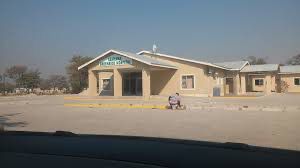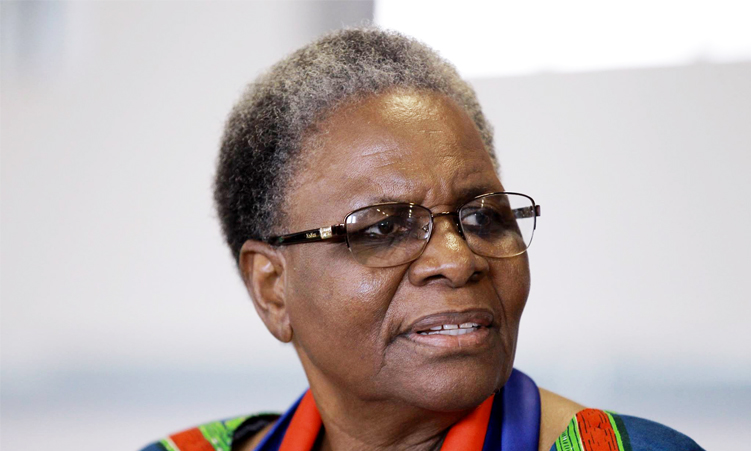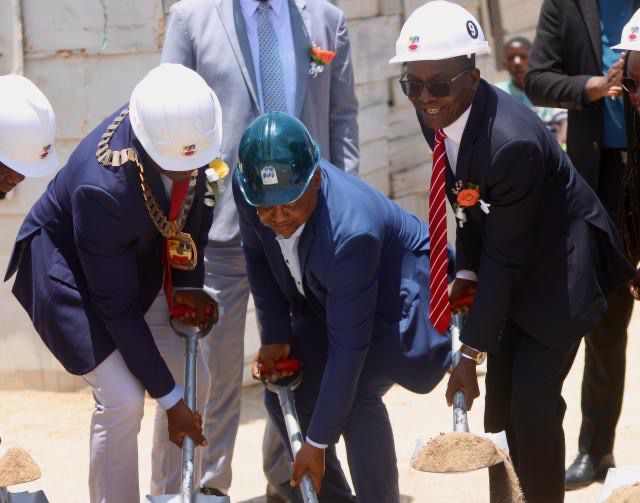HUAMBO – Life is looking up for Aida Felicia, a market trader and young mother living in the central Angolan town of Huambo.
Her small business selling fertiliser at the lively San Pedro market has been kick-started by a local credit scheme that allows her to buy in bulk at cheaper prices and take home more profit for herself and her family. “My life is certainly improving.In the past, I sold fertiliser on credit, so really I was selling on behalf of someone else.I had to give almost all the money back to the supplier and I was left with very little, sometimes nothing at all,” Felicia said.With a US$150 loan and some basic advice, her business and quality of life have changed for the better.”I used to give my kids milk once a day, now they can have milk twice a day,” she said.”I can buy them some materials to go to school and I’ve also bought some new things for my house.I feel like I’m better able to support my family.”Almost three decades of civil war left the oil-rich, southwest African country in tatters and many of its 13 million people in dire poverty.Two years after the war ended, the country is still struggling to rebuild its economy.Oil accounts for 40 per cent of Angola’s gross domestic product and makes up 80 per cent of government revenue, but it is the informal economy – market- and street-trade – that gives a job and income to more than two thirds of the workforce.”In terms of added value for the entire country, the oil sector makes the informal sector look very small, but the informal market is crucial in terms of employment,” said independent economist Jose Cerqueira.WHEN IT’S GOODFelicia is a good example of the informal market working well.She has no worries about repaying her loan in full, on time, and at an interest rate of 12 per cent over four months.One of around 950 clients who have joined a micro-finance initiative launched in Huambo by aid group Development Workshop in March 2002, she benefited from 10 weeks of business and financial training and dutifully attends weekly meetings to discuss business issues with fellow entrepreneurs.With 30 new budding businesspeople signing up to the Huambo scheme every month, the hope is that the agricultural province will soon have a thriving small enterprise sector.”I believe that this micro-finance project has changed the lives of many people immeasurably.People here were living in extreme poverty and were dependent on humanitarian aid.Now, there is already a huge difference,” said Emanuel Isaias, head of micro-finance at Development Workshop.”It is a very successful programme.Firstly because of the really high pressure of demand.and also because 97 percent of those who take loans pay us back,” he added.The government, private sector and international community recognise that nurturing this entrepreneurial spirit is vital to help reconstruct the broader economy.WHEN IT’S BADBut the desire to “tidy up” and formalise markets has had disastrous consequences in Angola’s capital Luanda, hurting the system which helps feed many of the urban poor.Arguing that the capital’s markets are unsafe, unhygienic, a traffic hazard and an eyesore, the provincial government shut down a number of trading establishments earlier this year.That decision sparked a public outcry and led to street battles between police and market traders in which at least four people died and several more were injured.Development workers say this kind of strategy, however well intentioned, is bad for business and worse for cutting poverty.”The transformation of a war economy into a post-war economy involves investing in improving the informal market, transforming it so that businesses have access to credit, can be registered, can take part in training and development programmes,” said Allan Cain, director of Development Workshop.”It is important to upgrade working conditions by building new, improved, more hygienic markets, but not by eliminating the informal market by force.”- Nampa-Reuters”My life is certainly improving.In the past, I sold fertiliser on credit, so really I was selling on behalf of someone else.I had to give almost all the money back to the supplier and I was left with very little, sometimes nothing at all,” Felicia said.With a US$150 loan and some basic advice, her business and quality of life have changed for the better.”I used to give my kids milk once a day, now they can have milk twice a day,” she said.”I can buy them some materials to go to school and I’ve also bought some new things for my house.I feel like I’m better able to support my family.”Almost three decades of civil war left the oil-rich, southwest African country in tatters and many of its 13 million people in dire poverty.Two years after the war ended, the country is still struggling to rebuild its economy.Oil accounts for 40 per cent of Angola’s gross domestic product and makes up 80 per cent of government revenue, but it is the informal economy – market- and street-trade – that gives a job and income to more than two thirds of the workforce.”In terms of added value for the entire country, the oil sector makes the informal sector look very small, but the informal market is crucial in terms of employment,” said independent economist Jose Cerqueira.WHEN IT’S GOODFelicia is a good example of the informal market working well.She has no worries about repaying her loan in full, on time, and at an interest rate of 12 per cent over four months.One of around 950 clients who have joined a micro-finance initiative launched in Huambo by aid group Development Workshop in March 2002, she benefited from 10 weeks of business and financial training and dutifully attends weekly meetings to discuss business issues with fellow entrepreneurs.With 30 new budding businesspeople signing up to the Huambo scheme every month, the hope is that the agricultural province will soon have a thriving small enterprise sector.”I believe that this micro-finance project has changed the lives of many people immeasurably.People here were living in extreme poverty and were dependent on humanitarian aid.Now, there is already a huge difference,” said Emanuel Isaias, head of micro-finance at Development Workshop.”It is a very successful programme.Firstly because of the really high pressure of demand.and also because 97 percent of those who take loans pay us back,” he added.The government, private sector and international community recognise that nurturing this entrepreneurial spirit is vital to help reconstruct the broader economy.WHEN IT’S BADBut the desire to “tidy up” and formalise markets has had disastrous consequences in Angola’s capital Luanda, hurting the system which helps feed many of the urban poor.Arguing that the capital’s markets are unsafe, unhygienic, a traffic hazard and an eyesore, the provincial government shut down a number of trading establishments earlier this year.That decision sparked a public outcry and led to street battles between police and market traders in which at least four people died and several more were injured.Development workers say this kind of strategy, however well intentioned, is bad for business and worse for cutting poverty.”The transformation of a war economy into a post-war economy involves investing in improving the informal market, transforming it so that businesses have access to credit, can be registered, can take part in training and development programmes,” said Allan Cain, director of Development Workshop.”It is important to upgrade working conditions by building new, improved, more hygienic markets, but not by eliminating the informal market by force.”- Nampa-Reuters
Stay informed with The Namibian – your source for credible journalism. Get in-depth reporting and opinions for
only N$85 a month. Invest in journalism, invest in democracy –
Subscribe Now!






